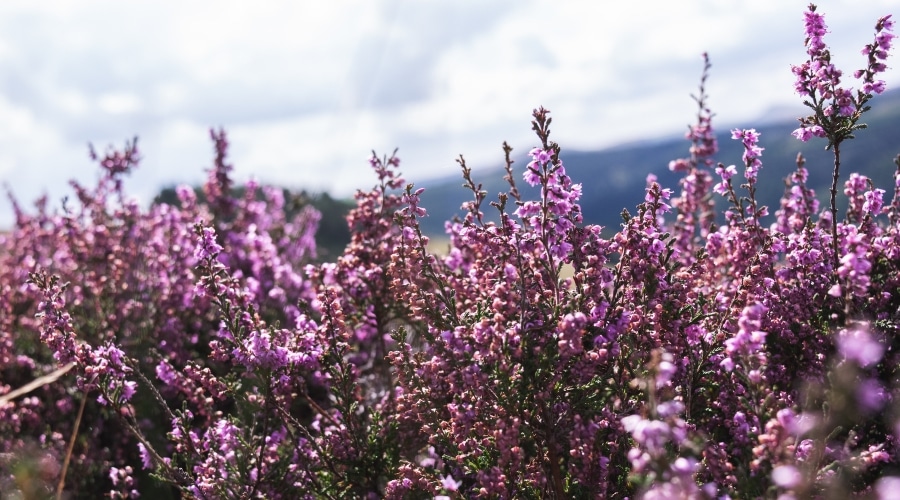
No “one size fits all” approach to upland management, report concludes
Researchers from the University of York published the findings following 10 years studying the impact of land management practices on moorland habitats.
Get information on the legal shooting season for mammals and birds in the UK.
Apply for funding for your project or make a donation today
Comprehensive information and advice from our specialist firearms team.
Everything you need to know about shotgun, rifle and airgun ammunition.
Find our up-to-date information, advice and links to government resources.
Everything you need to know on firearms law and licensing.
All the latest news and advice on general licences and how they affect you.

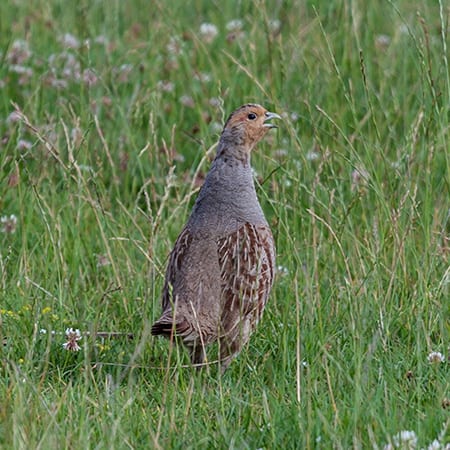
BASC’s Dr Conor O’Gorman takes a look at his favourite bird species – the enigmatic grey partridge…
Plump and roughly the size of a volleyball, most male grey partridge and some females have an obvious chestnut horseshoe shape on their greyish breast, with both sexes having an orange/brown hue to their faces.
Typically found in open lowland farmland areas where there is a mix of farming types. Most easily spotted on stubble fields and grassland where you might see a pair or a group (called a covey).
Wild grey partridge like grassy areas not prone to flooding to make their nest in, especially when close to areas that offer high densities of the right types of insects for their chicks to forage in.
In January/February look out for grey partridge squabbling an hour before dusk when the coveys start to break up and pairs are being formed. Unpaired males will stand in a prominent position calling out for females and showing off their horseshoe patch while throwing caution to the wind in their frantic search for a mate.
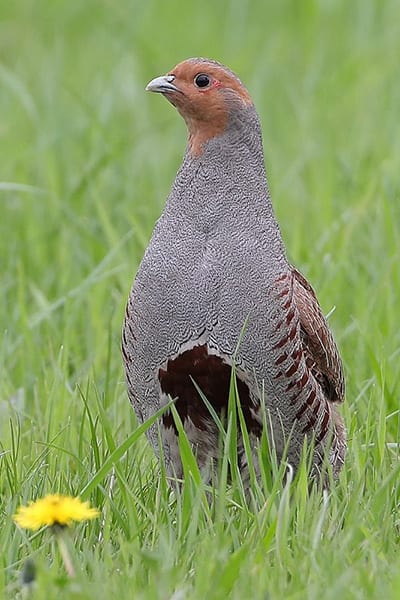
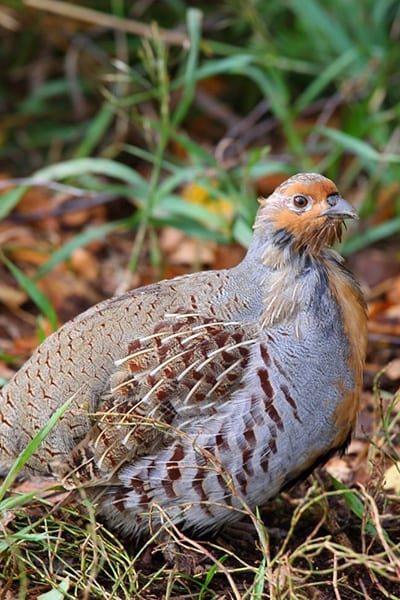
The wild population in the UK is in dire straits and has been in freefall over the last 50 years despite our best efforts to conserve them.
BASC members are helping to make a difference as part of BASC’s Green Shoots project. The Game and Wildlife Conservation Trust (GWCT) supports local partridge groups in various parts of the country, so if you want to try and re-establish a wild population, make sure you join a local group and take part in the GWCT partridge count scheme. You can also record your birds on BASC’s Green Shoots mapping programme.
Wild grey partridge pair up from January to March. The female makes a nest on the ground out of grass and it’s usually well hidden from view. The chicks are mobile immediately after they hatch, often a dozen or more of them. They’re only the size of bumble-bees and have massive appetites as they search for insects in their immediate surroundings. Both parents look after them diligently guiding their charges to the best feeding areas, protecting them from predators and brooding them to help them keep warm enough to survive.
Grey partridge are world record breakers! On average, the hen lays 15 eggs in the nest and some even lay 20+ eggs! That’s more than any other known bird species worldwide.
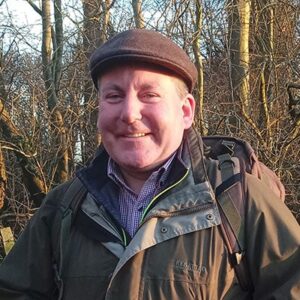

Researchers from the University of York published the findings following 10 years studying the impact of land management practices on moorland habitats.
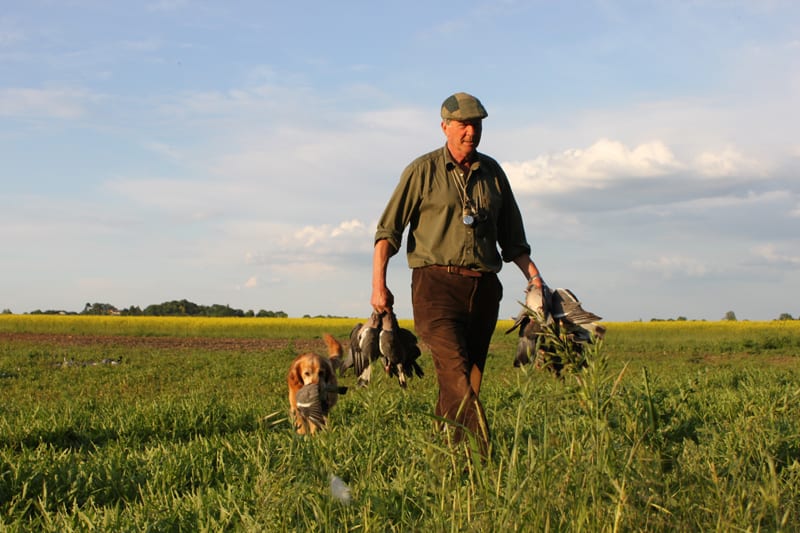
Scottish Natural Heritage has made last minute changes to the Scottish general licenses that will take effect from 1st January 2014. BASC is challenging the process and one of the decisions.

Find out how managing woodland effectively can deliver for shooting, while also bringing significant benefits for wildlife and biodiversity.
Sign up to our weekly newsletter and get all the latest updates straight to your inbox.
© 2025 British Association for Shooting and Conservation. Registered Office: Marford Mill, Rossett, Wrexham, LL12 0HL – Registered Society No: 28488R. BASC is a trading name of the British Association for Shooting and Conservation Limited which is authorised and regulated by the Financial Conduct Authority (FCA) under firm reference number 311937.
BASC Direct Ltd is an Introducer Appointed Representative of Agria Pet Insurance Ltd who administer the insurance and is authorised and regulated by the Financial Conduct Authority, Financial Services Register Number 496160. Agria Pet Insurance is registered and incorporated in England and Wales with registered number 04258783. Registered office: First Floor, Blue Leanie, Walton Street, Aylesbury, Buckinghamshire, HP21 7QW. Agria insurance policies are underwritten by Agria Försäkring.
If you have any questions or complaints about your BASC membership insurance cover, please email us. More information about resolving complaints can be found on the FCA website or on the EU ODR platform.